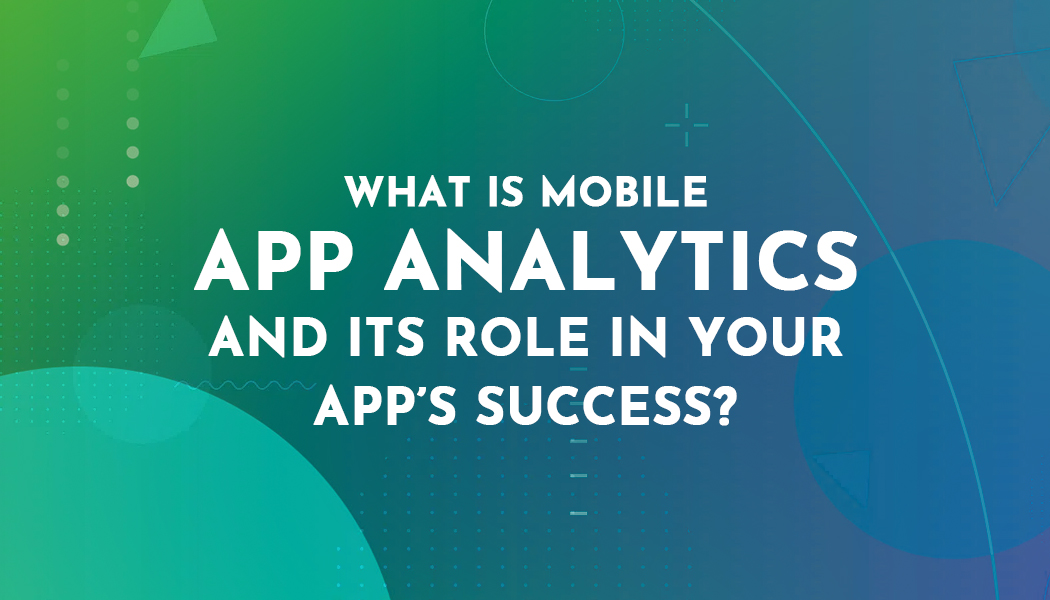What is mobile app analytics and its role in your app’s success?
In the dynamic landscape of mobile applications, success is not just about creating a visually appealing and user-friendly app. Rather, it's about understanding your users, their behaviors, and the performance of your app. This is where mobile app analytics and mobile marketing platforms step in, playing pivotal roles in shaping the destiny of your app. In this digital age, data-driven decision-making is a game-changer, and the synergy between mobile app analytics and mobile marketing platforms holds the key to unparalleled success.
In this blog, we delve into the world of mobile app analytics and Mobile Measurement Partner, exploring their significance and how they contribute to the triumph of your app.
Understanding Mobile App Analytics
Mobile app analytics involves the collection, measurement, analysis, and interpretation of data related to user interactions, behaviors, and app performance. It provides invaluable insights into how users engage with your app, where they drop off, what features they prefer, and much more. These insights are gathered through a variety of tools and technologies that track user actions within the app.
Key Metrics Tracked by Mobile App Analytics
1. User Acquisition :
Analytics helps you understand how users discover your app – whether through organic searches, paid advertising, social media, or referrals, facilitated by mobile marketing platforms. This information is vital for optimizing your marketing strategies.
2. User Engagement :
This metric measures how actively users interact with your app, shaped by the strategies implemented through mobile marketing platforms. It includes data on session length, frequency of app use, and the screens users visit, allowing you to tailor your app's content and features to meet user expectations.
3. Retention Rate :
Retaining users is often more cost-effective than acquiring new ones, and mobile marketing platforms play a role in keeping users engaged through personalized campaigns and notifications. Analytics helps you identify when and why users churn, enabling you to take corrective actions and enhance user satisfaction.
4. In-App Purchases and Conversions :
For apps with monetization strategies, mobile marketing platforms facilitate targeted promotional activities, while analytics helps in tracking purchases and conversion rates, providing insights into the effectiveness of your sales funnels and pricing strategies.
5. Crash Reports :
Analytics helps you pinpoint and rectify technical issues causing app crashes, ensuring a smoother user experience, which is further supported by mobile marketing platforms' ability to convey timely updates to users.
6. User Demographics and Geolocation :
Mobile marketing platforms can harness user data to deliver location-based promotions and content, and analytics assists in understanding your user base's demographics and locations, aiding in targeting specific audiences and personalizing content.
7. Feature Performance :
By analyzing which app features are most frequently used or ignored, you can make informed decisions about feature improvements or removal, enhancing user engagement with the help of mobile marketing platforms.
8. Funnel Analysis :
This involves tracking the steps users take to complete a specific action, such as signing up or making a purchase. It reveals where users drop off, helping you optimize the user journey,
The Role of Mobile App Analytics and Mobile Marketing Platforms in App Success
Selecting the appropriate analytics and mobile marketing platform tools is crucial for effective data collection, analysis, and user engagement. Some popular options include:
1. Google Analytics for Mobile Apps :
Offers comprehensive tracking and reporting features, allowing you to monitor user interactions, app crashes, and in-app purchases, while mobile marketing platforms help in reaching users through various channels.
2. Firebase Analytics :
Integrates seamlessly with Firebase development platform and provides real-time insights into user behavior and app performance, supported by mobile marketing platforms for targeted communication.
3. Flurry Analytics :
Offers a user-friendly interface and a wide range of metrics to track, helping you understand user engagement and retention, while mobile marketing platforms assist in delivering personalized content.
4. Mixpanel :
Known for its event-based tracking, Mixpanel provides detailed insights into user actions, allowing you to measure specific user behaviors, and mobile marketing platforms aid in converting these insights into actionable campaigns.
5. Amplitude :
Focuses on behavioral analytics, enabling you to understand user journeys and optimize the user
Conclusion
Mobile app analytics and mobile marketing platforms are two sides of the same coin, working in harmony to drive app success in the competitive digital marketplace. Their ability to provide deep insights into user behaviors, preferences, and app performance, coupled with personalized user engagement, is a winning formula for developers and businesses.
By leveraging the power of analytics and mobile marketing platforms, you can make informed decisions, enhance user experiences, optimize marketing strategies, and iterate your app for continuous improvement. In a world where data-driven insights meet targeted engagement, mobile app analytics and mobile marketing platforms emerge as indispensable tools for achieving and sustaining app success. Embrace this synergy, and watch your app thrive in an ecosystem driven by insights, innovation, and strategic communication.




